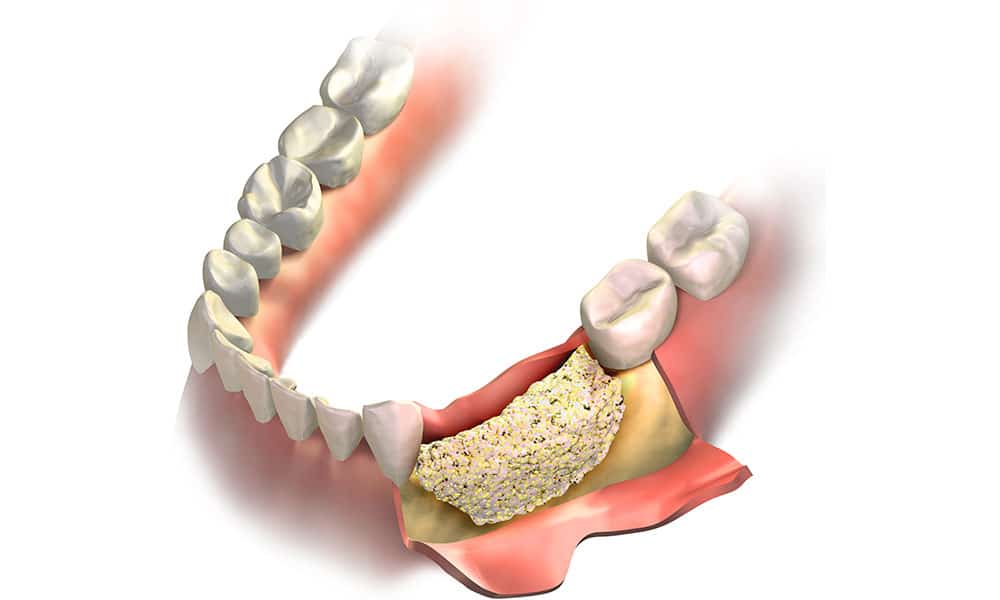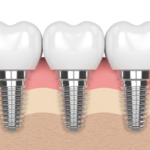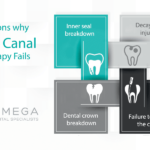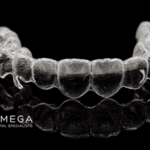What Is An Apicoectomy?

Apicoectomy or root canal surgery is a type of endodontic surgical procedure that involves removing the tooth’s root tip and infected tissue around the root canal tip. The prepared space is filled with some biocompatible material, like MTA. The procedure is often used when routine root canal therapy has not performed as expected. Today endodontists have the latest and most advanced state-of-the-art dental equipment including highly precise surgical microscopes used to perform this type of surgery.
Table of Contents
Why would you need an Apicoectomy?
Surgeons also use a variety of micro-instruments for highly precise removal of the root tip. Apicoectomy is chosen in many instances when a nonsurgical root canal procedure will not be sufficient. Perhaps most important of all is that this type of surgery can help to save a patient’s tooth or teeth in ways that would otherwise not be possible. Another important aspect of retrograde root canal treatment is that it can sometimes be used in diagnosis. This is for patients who have ongoing persistent problems and symptoms that are not detectable on an x-ray. For example, there may be cases where a tooth may have a microscopic canal or a tiny fracture that is undetectable when using normal nonsurgical treatment or diagnosis.
How is Apicoectomy performed?
Apicoectomy is a viable solution because it allows the endodontist to carefully examine the tooth’s root in its entirety. This is useful because in some cases an endodontist is simply unable to find the problem and provide treatment as needed. Another instance where endodontic surgery is useful is when calcium deposits result in a root canal being too narrow for standard dental instruments. In other words, the dentist is simply unable to reach the end of the root using conventional methods. When a tooth has calcification, Apicoectomy may be the best solution for cleaning and sealing the root canal.
With a very high success rate, about 95%, routine standard root canal treatment can last an entire lifetime never requiring any other type of further endodontic care or treatment. That said there are some instances where a tooth may not heal in the right way, and as such, it may ultimately become infected. When this happens, the tooth could become painful and eventually diseased months or even years later following what was thought to be a successful treatment. Surgery has proven over the years to help save a patient’s tooth, with a success rate of 85% when this is indeed the case. Another instance where Apicoectomy is used is when surrounding bone or damaged root surfaces require treatment.
Inspect The Underlying Bone
While there are many variations in dental surgery and some different unique surgical procedures that are used to save a tooth, the most common type of procedure is root end resection or Apicoectomy. There are situations where infection or inflammation becomes persistent in the area around the end of the tooth that is bony in nature. This can follow a routine root canal procedure. When this happens, the endodontist may find it necessary to perform what is known as an apicoectomy. The endodontist will open up gum tissue close to the tooth to inspect the underlying bone. It also affords the opportunity for the endodontist to remove any infected or inflamed tissue that may exist. In this case, the removal of the end of the root is usually necessary.
Is an Apicoectomy painful?
The next step in the procedure is for the endodontist to place a small filling in the root to seal the end of the root canal. Once this has been accomplished a few sutures are used to help facilitate healing of any tissue that has been affected. Eventually, the bone will heal around the end of the root over a period of months. From the patient’s perspective, it is important to note that almost every procedure of this type will incorporate some anesthesia so that virtually no pain is experienced. While there may be slight swelling following the procedure, over-the-counter pain medication is usually sufficient to deal with postsurgical pain.
How long does it take to recover from Apicoectomy?
Because Apicoectomy is usually an outpatient procedure patient can expect to drive themselves home unless otherwise advised. Most patients can return to work or other routine daily activities almost immediately. Recovery times can vary, and in most cases healing is fast. This type of endodontic treatment is only recommended when your dental care provider feels it is the best option for your particular dental situation.
Fortunately today most endodontic type surgery has an extremely high success rate. This means that patients can enjoy the benefits of keeping their natural teeth longer and much later into life. Years ago this simply was not an option and teeth were often extracted as a way to deal with almost any type of tooth related problem. Today’s modern dentistry is advanced, state-of-the-art and enjoys very high success rates across a broad range of dental procedures. Contact your dental care provider today to learn more about Apicoectomy treatment.
-
February 15, 2023What Is The Average Cost Of Braces In Houston?
-
February 01, 2023What You Need to Know About Dental Hygienists?
-
January 30, 2023What to Expect During the Wisdom Teeth Extraction
-
October 23, 2022Wisdom Tooth Removal Cost
-
October 23, 2022Dental Emergency, Open Saturday
-
October 23, 2022Full Guide to Dental Crown
-
July 26, 2022Should I Have My Wisdom Teeth Removed Before I Get Braces?
-
July 26, 2022Complete Guide to Wisdom Tooth Removal





